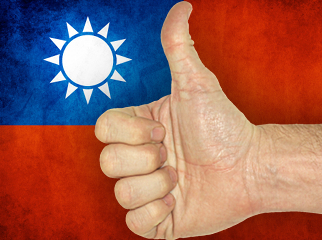 Taiwan’s cabinet has approved draft legislation that it says would allow the nation’s first brick-and-mortar casino to open for business by 2019. The move comes ten months after residents of the outlying Matsu islands chain became the first Taiwanese jurisdiction to approve a referendum welcoming an integrated resort-casino. The legislation will now require a vote by the full legislature, after which the government can officially begin vetting proposals by casino developers.
Taiwan’s cabinet has approved draft legislation that it says would allow the nation’s first brick-and-mortar casino to open for business by 2019. The move comes ten months after residents of the outlying Matsu islands chain became the first Taiwanese jurisdiction to approve a referendum welcoming an integrated resort-casino. The legislation will now require a vote by the full legislature, after which the government can officially begin vetting proposals by casino developers.
Besides the high-profile interest expressed by Weidner Resorts, Transportation Minister Yeh Kuan-shih said there are “two to three” other developers mulling a Taiwan casino bid. The government has yet to specify the precise number of casino licenses it will issue. Licenses would be valid for 30 years and the company that builds the resort will be the only one authorized to operate the resort’s casino.
While earlier reports had put the casino tax rate at 13%, the draft legislation says operators will pay 7% tax on gross gaming revenue for the first 15 years of their license, rising to 8% for years 16-25, rising again to 9% in the final five years. Local governments may levy their own special gambling tax with the rate not to exceed 7%. Operators will also be required to pay 0.5% of revenues to local education and welfare programs, plus a similar amount going to problem gambling resources.
Premier Jiang Yi-huah described gambling as a “new, complicated and high-risk business” for the nation, therefore it intends to follow Singapore’s lead in “implementing strict controls” over its casino operators. Gamblers will have to be 20 years of age or older to gain entry to the casinos and they won’t be allowed to gamble using credit or debit cards. No ATMs or money lending services will be permitted inside the casino. Family members would be able to apply to have a relative barred from the premises and the casino floor can’t take up more than 5% of the resort’s total footprint.
Yeh said screening casino applicants would take anywhere from six months to a year. The actual construction of the casino and the related infrastructure could take another four to five years, so Matsu won’t likely be open for gambling business until “2019 at the earliest.” Yeh also dismissed speculation that the government would permit casinos to be built on Taiwan’s main island, whether in major cities or in the country’s proposed free economic zones. “Currently, we do not have plans to expand the gaming industry.”
